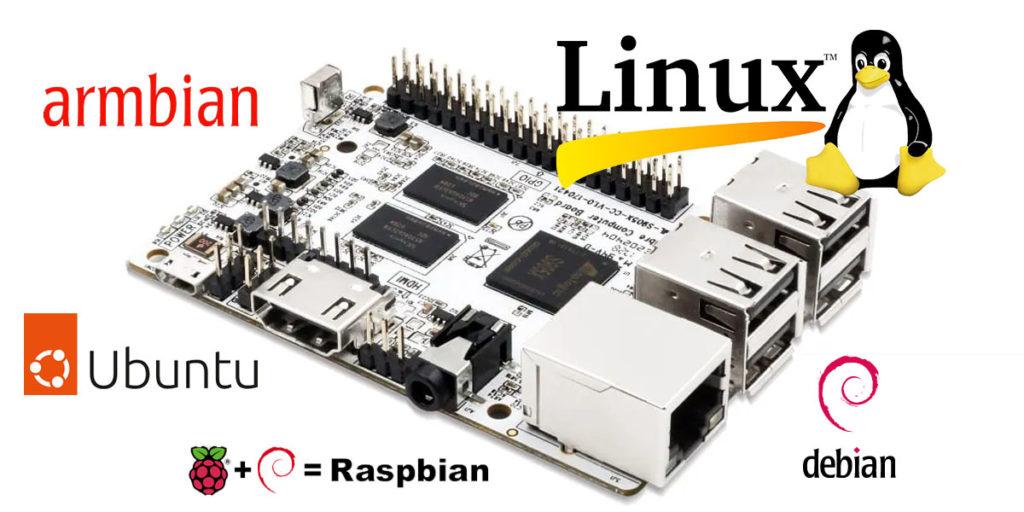
Installing a Le Potato OS image is going to be the first step in any DIY project utilizing this board. Chances are, you will need some flavor of a Linux Operating System. Luckily, the Le Potato has support from many different varieties of Linux, depending on your project’s needs. Linux OS such Ubuntu, Debian, and Armbian, to name a few.
You can install many different Le Potato OS images utilizing the many flavors of Linux. The most popular Linux OS to install on the Le Potato is Ubuntu, but some Le Potato DIY projects need to utilize other Linux OS such as Debian, Armbian, Raspbian, etc. This article will go over all the support Le Potato OS images along with download links to each.
Table of Contents
Does it Matter Which Le Potato OS to Use?
With how many different version of Linux that exist, not all projects will use the same operating system to build their software on. A lot of them will support Ubuntu but others may not. In order to setup whichever project on a Le Potato, you must figure out which OS is needed and then install a compatible version of that OS on your Le Potato. This guide is intended to assist you in finding whichever operating system you need, allowing you to download and install it quickly by pointing you to the Le Potato image for your required OS.
How to Install a Le Potato OS Image?
After downloading your desired Le Potato image, typically the file will have a .xy or .gz extension. That means those files are compressed and need to be uncompressed so you can begin flashing your micro SD card. Speaking of micro SD cards, it is important you get a high quality one.
As mentioned in the Le Potato Accessories article, you want to find one that is Class 10 and is rated A2. The A2 rating is important. This means the card is built with application use in mind, rather than solely for storage. It allows the card to have better performance running software on it, such as the OS you are wanting to flash.
After downloading your image, use a program like 7-Zip to extract the actual .img image from the file. Then connect your SD card to your computer and flash the image. If you are on Windows, I’d recommend using Win32 Disk Imager to handle your flashing.
Using Win32 Disk Imager, you basically select the drive letter for your SD card and load the OS .img file and click the ‘Write’ button and wait. Once it is finished, your SD card should be flashed with your operating system and be ready to be inserted in to your Le Potato! Easy-peasy.
Le Potato OS Images
Here is a complete guide for Le Potato OS images. Be sure to follow any software/platform’s installation instructions, as these instructions will guide you with what Linux OS you will need to install on your Le Potato, and thus which Le Potato OS image you will need to download. Sometimes, the software will support a couple flavors of Linux, and sometimes, the software will only support a specific version of Linux.
The best advice I could give would be to always chose Ubuntu, if your project’s software supports it. Ubuntu is arguably the most popular version of Linux outright, and is fully supported on the Le Potato. Should you run into issues, there are tons of help forums and pages all over the place to find a solution, or even ask for help if you’re really in jam.
Linux OS Images for the Le Potato
If your Le Potato project calls for a specific Linux operating system, find that image below.
Ubuntu Le Potato Image
As mentioned above about Ubuntu’s general popularity, Ubuntu is also the most popular operating system for the Le Potato as well. Many Le Potato projects either must, or can use Ubuntu as its OS. For the Le Potato, you can download Ubuntu as either the base install, the desktop install or the server install. For most projects, the sever install would be best, unless a specific version of Ubuntu is required by your project’s installation instructions.
Default Ubuntu SSH username/password: ubuntu/ubuntu
Download: Ubuntu Le Potato Image
- You will want to download the version that ends with “aml-s905x-cc.img.xz” as this is the model number for the Le Potato
Libre Computer’s Ubuntu Support Page
Raspbian Le Potato Image
Raspbian is an operating system designed for Raspberry Pi boards that is based off of Debian. It is optimized for the Pi’s hardware and comes with over 35,000 packages to make usage much easier. Seeing as how the Raspberry Pi 3 Model B and the Le Potato are so closely related, Raspbian makes an excellent OS choice. Raspbian 11 (bullseye) has been fully ported to support the Le Potato and its hardware. It is offered as both a lite version and a regular version.
Default Raspbian SSH username/password: pi/raspberry
Download: Raspbian Le Potato Image
- You will want to download the version that ends with “aml-s905x-cc.img.xz” as this is the Le Potato’s model number
Libre Computer’s Raspbian Support Page
Debian Le Potato Image
Debian is the Linux operating system that was the foundation Ubuntu was created on. Finding an official image for the Le Potato was a bit hard, since Libre Computer has not officially released one. Luckily, there is a mention in the support thread about creating a Le Potato Debian image. If you head here, you can find the Debian boot image and the specific version’s filesystem image and then combine them to make a flashable Le Potato image. If you are on Linux, feel free to run through that process. But if you’re on another OS, or don’t feel like doing it yourself, I went ahead and created a Le Potato Debian image ready to be downloaded.
Default Debian SSH username/password: root/cohzi4
- This username/password combo is specific to the image I combined which you can download below
- If you combine your own image using the link above, you will need to follow the instructions to get the root user’s password (the end of the filename is the password)
Download: Debian Le Potato Image (Debian 11 Bullseye)
Libre Computer’s Debian Support Page
Armbian Le Potato Image
Armbian is an Linux operating system that has been designed to be an ultralight Linux experience, optimized for single-computer boards, such as the Le Potato. It has been designed for use with SD cards and preforms while minimizing wear on the SD card. Armbian also claims that its security is on the same level as Ubuntu and Debian. Armbian has an official Le Potato image that is offered in both a desktop version and a server version.
Default Armbian SSH username/password: root/1234
Download: Armbian Le Potato OS Image
- Found about half way down the page
Libre Computer’s Armbian Support Page
Endless OS Le Potato Image
Endless OS is another Linux operating system based off of Debian. There is a Le Potato image for Endless OS, but it is still in development. For instance, the HDMI audio is under development and the AV jack is currently untested.
Download: Endless OS Le Potato Image
- The downloads can be found towards the bottom of the page
- Base install which only has the essentials and is around 3 GB
- Full install which has everything and is much larger at over 16 GB
Endless OS Le Potato Support Page
Software-Specific OS Images for the Le Potato
If your Le Potato project uses a custom image with the software built in, find that image below.
LibreElec Le Potato Image
LibreELEC is an OS that is intended to run Kodi as efficiently as possible, with their tagline being “Just enough OS to run Kodi.” If you are looking for a media center with a lightweight install of Kodi this or CoreELEC are your go-to choices. Libre Computer, the maker of the Le Potato, recommends CoreELEC over LibreELEC for Amlogic (AML) boards, such as the Le Potato.
Default LibreELEC SSH username/password: root/libreelec
Download: LibreELEC Le Potato Image
- Look for the AML-S905X-CC (LePotato) download
Libre Computer’s LibreELECT Support Page
CoreElec Le Potato Image
CoreELEC is very similar to LibreELEC, in fact, CoreELEC is a fork of LibreELEC. It is another “just enough OS” with Kodi in mind. As stated above, Libre Computer, the maker of the Le Potato, recommends CoreELEC over LibreELEC for better performance and features with AML boards such as the Le Potato.
Default CoreELEC SSH username/password: root/coreelec
Download: CoreELEC Le Potato Image
- Download the file that ends with “LePotato.img.gz”
Libre Computer’s CoreELECT Support Page
EmuELEC Le Potato Image
EmuELEC is a fork of CoreELEC and Lakka, with tidbits from Batocera, according to its GitHub page. It is essentially the best of all of these combined together to create a cool retro gaming experience. My personal opinion is to use EmuELEC over Lakka or Batocera, but ultimately, that choice is up to you. I have written a full EmuELEC Le Potato Setup Guide that you can follow, if you’re interested.
Default EmuELEC SSH username/password: root/emuelec
Download: EmuELEC Le Potato Image
- Scroll down a bit to find the Assets and look for the file that ends with “LePotato.img.gz”
Libre Computer’s EmuELEC Support Page
Lakka Le Potato Image
Lakka is a retro gaming operating system based off of LibreELEC. While Lakka is able to be installed on the Le Potato, Libre Computer, the manufacturer of the Le Potato, recommends using Batocera instead. For what it’s worth, I feel like EmuELEC would be the better choice over Batocera or Lakka. However, if you still want to go with Lakka, here is all the info you’ll need.
Default Lakka SSH username/password: root/root
Download: Lakka Le Potato Image
- About half way down the list is the Le Potato OS image, not be confused with the Le Frite download
- Once you have flashed Lakka, you will need to replace the file meson-gxl-s905x-libretech-cc.dtb with this downloaded meson-gxl-s905x-libretech-cc.dtb file, otherwise, you Lakka OS will be stuck in on the startup logo
Libre Computer’s Lakka Support Page
Batocera Le Potato Image
Batocera is another good option when it comes to emulation on a Le Potato. As stated above, my personal opinion would be to go with EmuELEC over Batocera as EmuELEC has features from Batocera and Lakka combined into it. However, if Batocera is your jam, the information below will help you to get started. Plus, I have written a full setup guide for creating a Batocera Le Potato Retro Gaming Console you can follow.
Default Batocera SSH username/password: root/linux
Download: Batocera Le Potato Image (find the .img.gz file towards to the top of the page)
Libre Computer’s Batocera Support Page
Wrap Up
This list of Le Potato OS images will grow over time as more projects come to light. If I missed any, be sure to let me know and I’ll test them out and add them to the list. Which of these Linux OS images have you used and for what projects? I’d be curious to know! Thanks for reading.
You May Also Enjoy

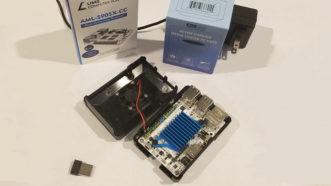
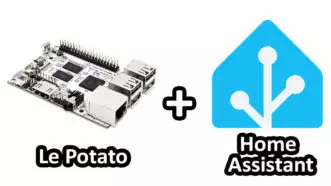
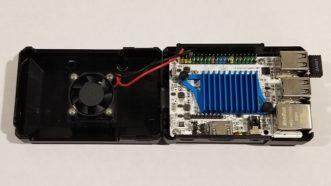


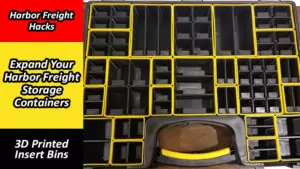



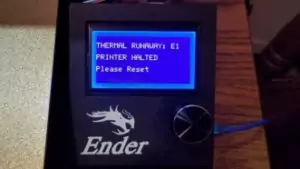

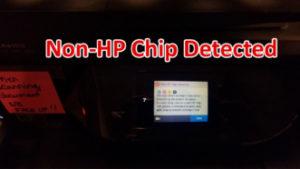
Leave a Reply